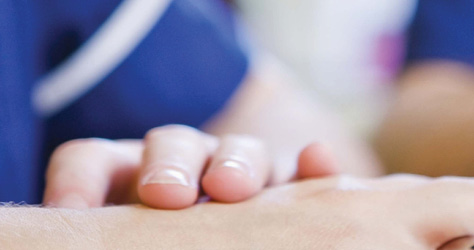How to cope with the pain of labour
Deciding what pain relief you want during labour is an important consideration for most mums when they are writing their birth plan.
At a glance
- Planning your pain relief is an important consideration when writing a birthing plan
- Your midwife will talk through what will be available on the day
- Once you are holding your new arrival, the pain of labour is often forgotten

It’s a well- known fact that once you’re holding your new arrival in your arms the pain of labour is forgotten.
However, that doesn’t mean we want – or have – to go through labour without any pain relief.
Your midwife will talk you through what will be available you on the day, and you might want to write in your birth plan what pain killers you would prefer to have (or indeed, not be offered). Don't worry about changing your mind on the day, even if you plan for a natural, drug free delivery you can still request an epidural or pethidine once things get going – your midwives won't bat an eyelid!
Natural pain relief in labour
If you’ve decided against pain relief drugs during labour, there’s a few different things you can do naturally that might help to relief some of the pain. These include:
Warmth – Warmth is a great way to relax muscles, and can help you during labour especially in the early stages. You could use a wheat bag to warm your lower back or groin, or use a hot water bottle in a similar fashion
Warm bath or birthing pool – A warm bath can help you to relax and make your contractions less intense. Many women find they feel less pain and less likely to use pain relieving drugs when using a birthing pool
Breathing to relax – By focusing on your breathing you can relax more easily and ease the pain of your contractions. It’s best to take a deep breath through your nose and out for your mouth ensuring you keep a good rhythm focusing on breathing in as your contraction starts and out as the contraction begins to fade
What pain relief is available to you once labour kicks in?
TENS machines
TENS machines are great in early labour and can really take the edge off your twinges. They work by delivering tiny electronic shocks via little pads which you stick on to your lower back – the current then stimulates your nerves to help relieve the pain. You will probably have to buy or hire one of these privately.
Gas and air
Gas and air – or Entonox – is a mix of oxygen and nitrous oxide which you breathe in via a mouthpiece as each contraction starts. It has no effect on your baby, and you can stay in control of how much you inhale. However, it can dry your mouth out so keep some lip balm to hand!
Pethidine
Pethidine is given by an injection in your thigh or bottom, and will help you to 'distance' yourself from the pain of your contractions. If your labour is long, it may also enable you to get some rest. However, some mums find it makes them feel dizzy or sick. It can also cause side-effects for your newborn baby, such as respiratory depression and drowsiness which may last several days. It may also interfere with breastfeeding. NICE guidelines 2007).
Epidural
An epidural is an anaesthetic which is injected into your lower back. It will numb you from the waist down. It takes around 20 minutes to set up, and has an immediate effect. It provides more effective pain relief than drugs like pethidine, and is not associated with a longer first stage of labour, or Caesarean Section. However, some mums say their epidural left them with short-term backache. Epidural is also associated with a longer second stage of labour, and needing a forceps or ventouse delivery.